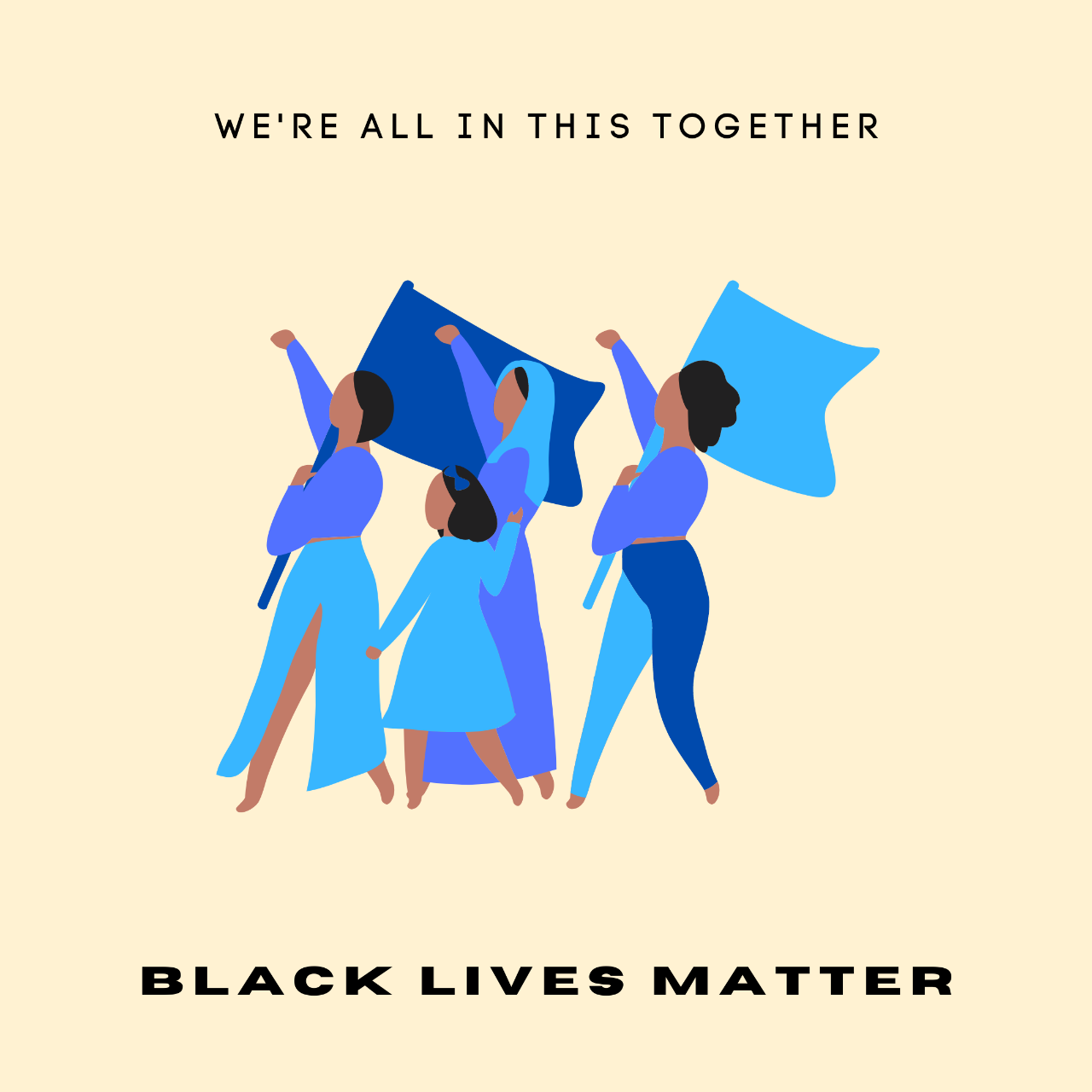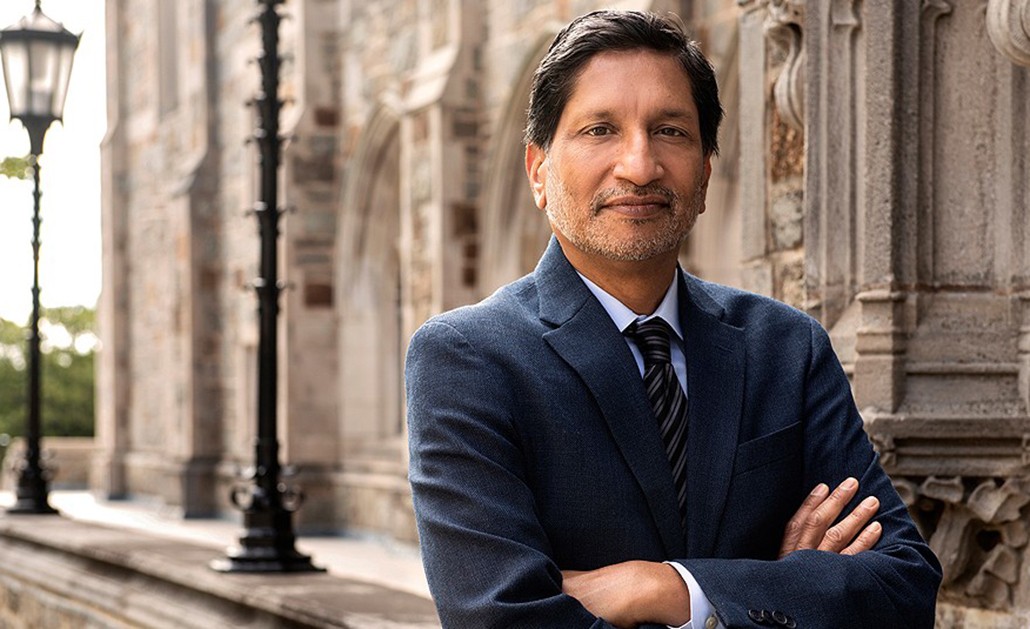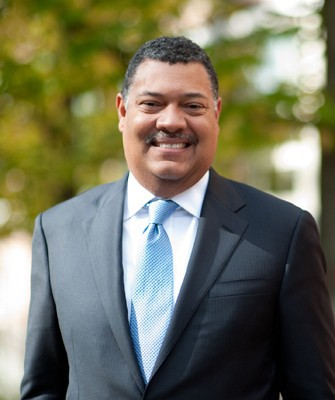
Yadama and Rougeau said that Americans will fail to dismantle structural racism unless they band together to reject hateful ideology and reconstruct communities and organizations to be more diverse and inclusive. Graphic by Alyssa Gocinski.
Americans will fail to dismantle structural racism unless they band together to reject hateful ideology and reconstruct communities and organizations to be more diverse and inclusive. That was the message embraced by two deans at Boston College in a webinar hosted by the School of Social Work on Tuesday.
“We need to start thinking more profoundly about the way we approach every aspect of how we live together as a community in order to root out racism,” Vincent D. Rougeau, dean of the Law School, said in a one-on-one conversation with Gautam N. Yadama, dean of the School of Social Work. “Our individual actions and morality are important,” he said, “but they don’t address the fact that society still tends to oppress and subjugate people based on categories that they have been assigned to.”
The discussion between Rougeau and Yadama marked the latest event in the Equity, Justice, and Inclusion Initiative, a program launched by the School of Social Work two years ago to develop policies and practices that promote a caring, respectful, and inclusive culture. The initiative, Yadama said Tuesday, lies at the heart of the school’s promise to respond to anti-black racism in the wake of the unjust killings of George Floyd, Breonna Taylor, and Ahmaud Arbery.
The theme for the Equity, Justice, and Inclusion Initiative this year, “Good Trouble: Disrupting White Supremacy in Social Work,” honors the legacy of John Lewis, a civil rights leader who urged people from all over the world “to speak up, to speak out, to get into what I call ‘good trouble.’” Students, faculty, and staff in the School of Social Work may now sign up to join the initiative and participate in one of four working groups during the 2020-2021 academic year.

Gautam N. Yadama, dean of the School of Social Work
“The EJI Initiative,” Yadama told people who attended the webinar, “is essentially our approach to expanding the way we train social work leaders to develop policies, practices, and mechanisms in their own practices and in institutions they are heading.”
Both deans said that social workers and lawyers must listen to the people in the communities they serve in order to design sustainable solutions to intractable problems, including disparities in housing, healthcare, and education.
Yadama noted that the Latinx Leadership Initiative in the School of Social Work exemplifies that ethos—the best way to create sustainable solutions to complex problems is to work with the people who live those problems every day—and added that the school is working to create a Black Leadership Initiative in which students, faculty, and staff will strive to build thriving communities for Black individuals and families.
Students in the LLI develop a nuanced understanding of the barriers that prevent Latinx communities from accessing equitable education, social services, and healthcare. They take a holistic approach to working with Latinx people, considering spiritual beliefs, financial status, and family dynamics, and conduct cutting-edge research that shapes the strategies social workers use to support Latinx clients.
“One of the key elements of designing interventions is to ensure it is informed by those who are embedded in those dilemmas,” Yadama said. “We say, ‘here’s something that’s designed, crafted, and tested in consultation with communities to meet the needs [of the community], and that’s one way we dismantle certain dominant voices.”

Vincent D. Rougeau, dean of the Law School
Rougeau echoed Yadama, saying that the architects of an antiracist society must reflect the diversity of that society. “We’re not going to get meaningful change until we have voices of excluded groups at the table,” said Rougeau, who directs the BC Forum on Racial Justice in America. “It’s a path we've been on slowly since the 1960s,” he added, referring to the decade in which the Civil Rights Movement ended.
Rougeau noted that lawmakers often create rules without input from people who stand to be most affected by them. This often leads to unfair outcomes in the criminal justice system, he said, adding that nearly 500,000 people are now being held in jail cells around the United States because they can’t afford bail.
“In order to execute the work of your profession in a way that meets the values you have set for it, you need to step out from yourself from time to time to think of the rule you want to impose and who will likely be affected by it,” said Rougeau, who served as articles editor of the Harvard Human Rights Journal in the late 1980s, when he was working toward his law degree at the Ivy League university. “We generally structure rules from the perspective of people in power without regard to how it will affect those without power and create an infrastructure that’s deeply oppressive to people of moderate means and no power.”
Yadama said that all Americans must work to dismantle white supremacy, adding that people of color should not be made solely responsible for carrying the burden of educating and informing. Rougeau agreed, saying that faculty in colleges across the United States must speak up on behalf of students who feel pressure to inform their classmates about their experiences in underrepresented racial groups.
“As faculty, we have to understand the breadth of an issue and we can intercede on behalf of students who otherwise would be in a position to represent their ethnic or racial group,” he said. “We have to create a space that liberates students of color to engage in intellectual give and take without having to be burdened with being the voice of the other.”


